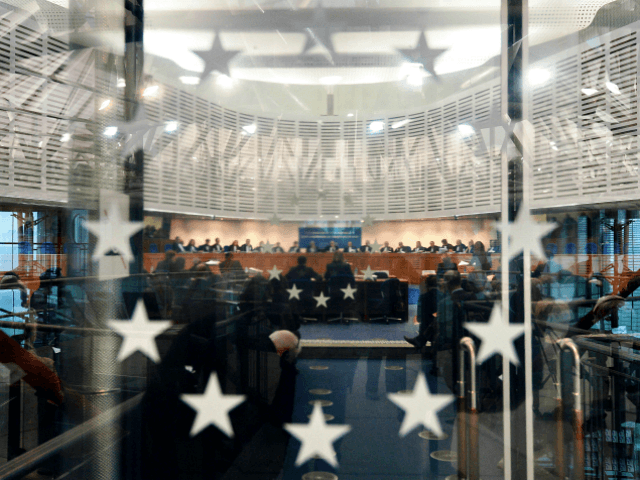Boris Johnson may bend to EU demands that Britain accept submission to the European Court of Human Rights (ECtHR) in perpetuity in exchange for a Brexit deal, according to reports.
Tasked with upholding the European Convention on Human Rights (ECHR) by the Council of Europe organisation, the European Court of Human Rights is, unlike the European Court of Justice (ECJ) technically not a European Union institution — although in practice the EU demands that all prospective member-states submit to it, and previous British governments have indicated to Parliament that they do not believe it is possible to renounce the ECHR and remain in the EU.
The EU’s demand that the United Kingdom continue to submit to the ECtHR as the price of a Brexit deal appeared to further underline its symbiotic relationship with the bloc — as well as growing establishment recognition of public dissatisfaction with its rulings, which are often perceived as taking the side of terrorists, dangerous criminals, sexual predators, and illegal migrants against national governments and law-abiding citizens.
The chances of Britain finally escaping the orbit of the European Court of Human Rights after the Brexit-in-name-only “transition period” expires at the end of 2020 now appear slim, however — despite a recent survey indicating that a majority of Conservative voters want to see European human rights laws curbed.
“Upholding the ECHR would be identified in the deal as a precondition for co-operation in the security area,” an EU source confirmed in comments to The Telegraph.
“Should that stop, then the security co-operation would end,” they added — a threat which is not levelled at other advanced democracies such as Australia, Canada, and the United States.
A British government source, meanwhile, indicated to the newspaper that the United Kingdom “remains committed to the ECHR” and “agree[s] that cooperation with the EU should be based on our shared values of respect for fundamental rights and for the rule of law” — a heavy hint that it is prepared to give way to EU’s efforts to interfere in the shape of Britain’s domestic human rights regime.
David Frost, the hitherto robust British negotiator who has replaced the controversial Oliver ‘Olly’ Robbins in the ongoing Brexit talks, has also hinted that the Johnson administration may cave in to EU demands that the United Kingdom remain subject to Brussels diktats on state aid after the 2020 “transition period”.
“We’re beginning a discussion on if it is possible to go further than normal in a free trade agreement and agree some provisions that shape and condition subsidy policy on both sides,” Frost said.

COMMENTS
Please let us know if you're having issues with commenting.